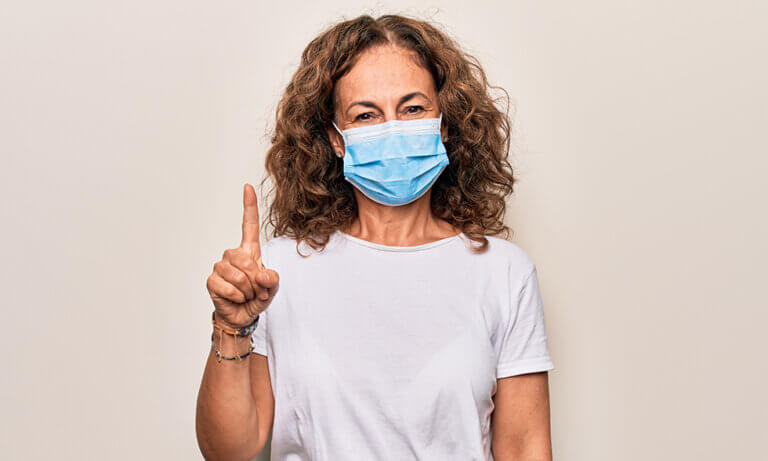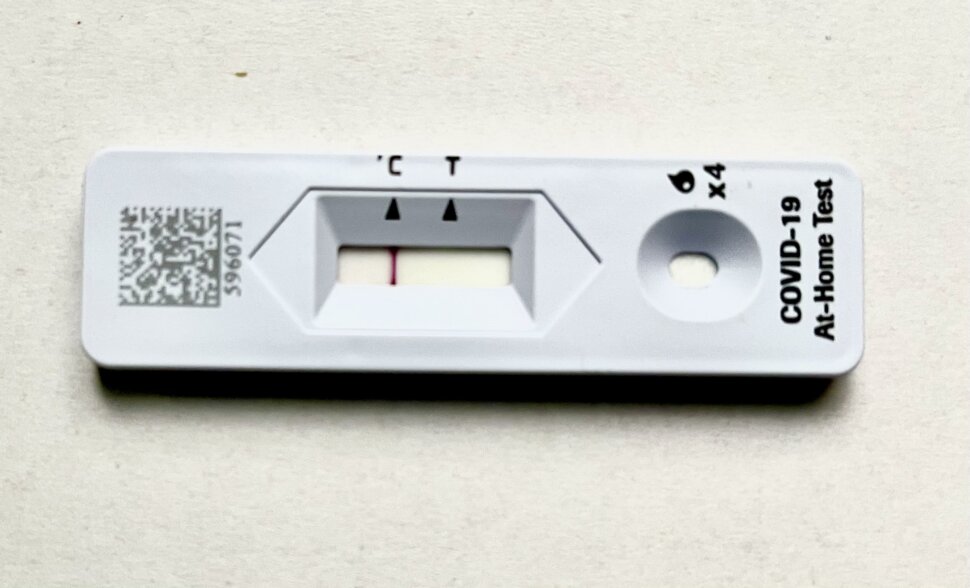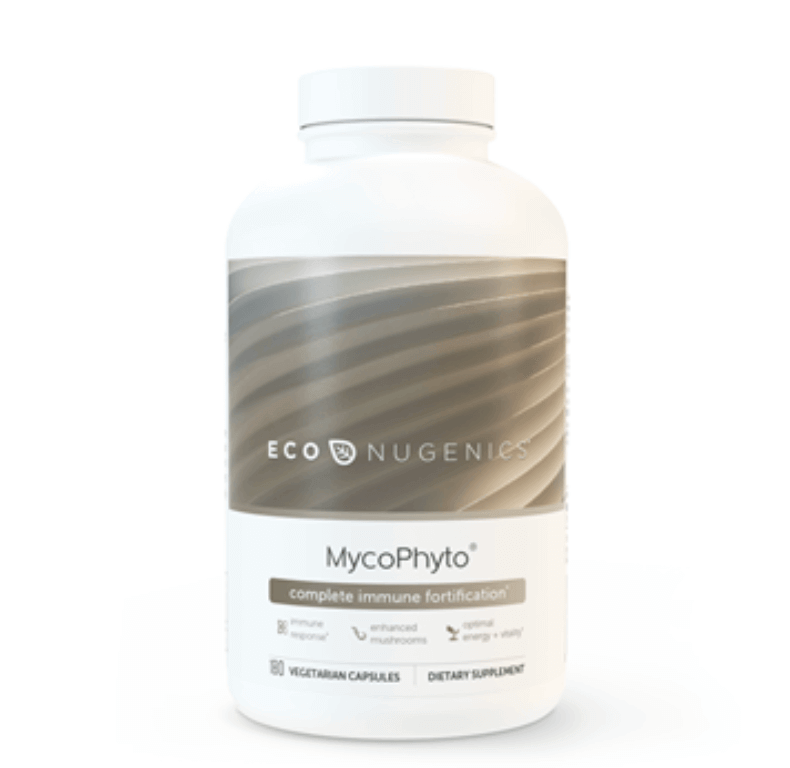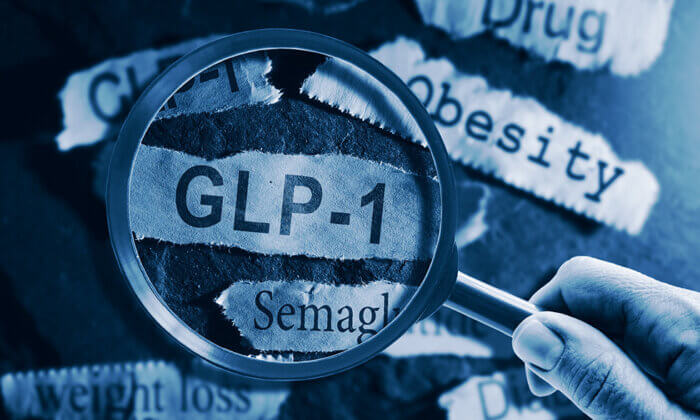7 Questions My Patients Ask Now About COVID-19
| | Reading Time: 5 minutes

I wish the SARS-CoV-2 Pandemic were over. But it’s not. In fact, we’re still in the OMICRON wave that started with BA.1 in late 2021 and mutated to BA.5 by summer 2022. Nor have we haven’t reached herd immunity or vaccinated our way out of this pandemic. We’re at an elevated plateau, but no longer in the chain reaction phase where one case triggers dozens of infections. Current infections are milder than before, and we’re better at diagnosing and managing COVID-19. But we’re not near the end of this pandemic. What can we do now to protect ourselves, our family, and our community during an extended plateau or from another wave? The following are the most common questions my patients ask about COVID-19.
1. Do I Still Need to Wear a Mask?
I get it. People are mask averse but wary of getting sick. After nearly three years, I’m tired of wearing a mask too, but I know the value of wearing it, so I ensure that my clinical staff and I comply with best protection practices. Either our patients or staff, or both, are masked when in the clinic. Use your best judgment when indoors in public. For example, airports have high infection rates. So, wear a mask when traveling. I never leave the house without one and wear a mask when I think necessary. And I stocked up on more KN95s in case we’re faced with another wave.
2. When Should I Get Tested?
In the clinic, we regularly test the doctors and staff for COVID-19 by rapid antigen home test kits. It’s professional and safeguards our staff and patients, and their families. Test yourself at home with a rapid test at the first sign of symptoms even if you suspect it’s a cold or mild flu, or as in my case, allergies. It you have known exposure and symptoms but test negative, retest in 2-3 days. The time of free drive-through testing is over. Make sure you have test kits at home. National pharmacies like Walgreens and CVS provide low or no-cost COVID-19 rapid tests. The U.S. government will send you free At-Home COVID-19 tests.

Dr. Williams’ last rapid test of August 6, 2022, with negative results.
3. Should I Have Another Booster Now or Wait?
Boosters are the most common concern now. It applies to those vaccinated with the Pfizer or Moderna mRNA vaccines and who have had at least one booster. However, it’s become clear that vaccination and even a second booster do not provide long-term protection. Protection from the first booster only lasts about 4-6 months. That’s why the CDC pushes for a second booster. But the fourth shot only extends immune protection for just a few months. Is it worth it?
Keep in mind that mRNA vaccines induce strong short term humoral and cellular immunity. They were best at dealing with variants of the Delta wave. However, they don’t provide sufficient mucosal immunity in the respiratory tract, especially needed against the Omicron BA variants. Another concern is that frequent boosting with the same mRNA vaccines, even at the recommended reduced dose, will cause immune exhaustion. Too many vaccinations tip the immune balance; T-cells to become less efficient, even dysfunctional. We can’t boost our way out of this pandemic with existing vaccines. Over stimulating the immune system with existing vaccines is not the solution. I do not advise my patients to get a second booster.
4. Are Breakthrough Infections Common?
Though mRNA vaccines are reasonably effective at averting severe illness and moderately effective at preventing infection, breakthrough COVID-19 occurs with both. A recent study found the Moderna/mRNA shot had fewer cases of breakthrough infections and is a little more durable than Pfizer’s. Immunocompromised patients and the elderly have the highest rate of breakthrough infections. In New York State, 15% of fully vaccinated people experienced a breakthrough infection. However, the number of breakthrough infections causing death is very low at 1 in 100,000 fully vaccinated people.
5. What Should I Do to Avoid and Treat Neurological Complications of COVID-19?
As high as 60% of post-COVID cases experience tingling of the hands and feet. Labeled infection triggered small-fiber neuropathy (SFN), symptoms include tingling sensations and painful hypersensitivity of the skin, pins-and-needles, prickly sensations, and some complain of ice-cold feet. Most SFN symptoms go away on their own in a month, but in Long COVID patients they become chronic. Natural treatments include vitamin B12 (as methylcobalamin), vitamin B6 (as activate pyridoxal 5’ phosphate), and acupuncture.
6. What’s Next?
Waning protection occurs in all vaccines against COVID-19. But the most significant decline in protection is in the Johnson & Johnson shot falling from 86.4% to 13% in six months. I don’t advise getting the J&J vaccine. Novavax is the latest COVID-19 vaccine to earn FDA approval. Instead of mRNA, it uses moth cells and tree bark extract from Chile. And there’s no polyethylene glycol (PEG) in Novavax. Traces of PEG are in the mRNA vaccines as a stabilizer, and though rare, some people have life-threatening allergic reactions to PEG. Novavax is 90% effective in preventing COVID-19 in those under 65 years. And though less effective in the older population, it’s as effective as the mRNA vaccines. However, it’s only approved for primary protection, so is not available as a booster. A few of my chronic fatigue syndrome (CFS) patients and those with known PEG sensitivity held out until the Novavax was approved. They’re now vaccinated, have had no side effects, and doing well. About 12 nasal spray vaccines that provide improved mucosal immunity protection are in development. A few are in clinical trials. But they are a long way from ready without robust government support. Don’t wait, use you best judgement now to stay safe.
7. Are There New Supplements to Prevent or Treat COVID-19?
Research scientists, citizen researchers, and integrative clinicians like me want to know if we can do more with nutraceuticals. My original recommendations have held up well. My patients have fared better, none advanced to Long COVID, and if they got COVID-19, the course of their infection was mild and lasted no more than a week. The one addition is boosting type 1 interferon as part of your viral immunity program with medicinal mushrooms. Interferons activate intercellular antimicrobial innate and adaptive immune responses to infections. Type I and II interferons are cytokines produced in the body during viral infection. They not only fight off viruses but protect body tissue from the damage associated with an aggressive immune response against viral infection.
The more we understand about the body’s immune response to SARS-CoV-2, the greater our appreciation become for interferon. It is a critical component in preventing COVID-19 and modulating the immune response when infected. Nutraceuticals that boost interferons include zinc, selenium, vitamin D3, vitamin C, curcumin, glutathione, quercetin, and N-acetylcysteine. Nrf2 activators like sulforaphane (isolated from broccoli and cabbage) play anti-inflammatory and antioxidant roles during infection. Nrf2 activators support an integrated anti-inflammatory response to balance inflammation’s beneficial and adverse effects during infection. And they enhance interferon.
In addition to a healthy diet high in natural antioxidants, certain lifestyle activities support interferon activation, including saunas, soaking in a hot bath, and getting enough natural sunlight. Spend more time outdoors. Sunbathe if you have a safe place. If you don’t have a home sauna, soak in a hot tub or bath once a week. And continue to take the supplements I recommended, especially Nrf2 activators. I’ve changed dosages and times per day for taking these nutraceuticals. For example, current research suggests taking NAC 600 mg twice daily is best to boost interferon. And I added a medicinal mushroom blend to support viral immunity.
10 COVID-19 Supplement Recommendations + Medicinal Mushrooms
- Beta 1, 3-D-Glucan 500 mg, once daily
- Buffered Ascorbic Acid 670 mg, once daily
- NAC 600 mg, twice daily
- Nrf2 Renew, twice daily
- Quercetin 300 mg, once daily
- Reduced Glutathione 200 mg, once daily
- Selenomethionine 200 mcg, once daily
- Vitamin A 10,000 IU, once daily
- Vitamin D3 5,000 IU, once daily
- Zinc Glycinate 30 mg, once daily + MycoPhyto, 3 capsule twice daily

You’ll find my recommendations on Fullscript.
Sign up for free without obligation and get a discount on every order.


